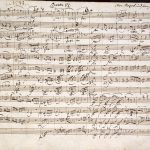
This year marks the 20th anniversary of “Journey to Iran,” an album by Iranian pianist Guity Adjoodani that has resonated with audiences worldwide. Released two decades ago, this album is a beautiful tapestry of twenty Persian folk songs, each carefully selected from the rich musical traditions of various regions in Iran. It also features four notable compositions by the esteemed Javad Maroufi (1915-1992): “Prelude,” “Jila Fantasia,” “Golden Dreams” (Khaab-haa-ye Talaayi), and “Isfahan Rhapsody.” Additionally, the album includes the beloved song “Kiss Me” (Maraa Bebous) by Majid Vafadar (1912-1975), adding depth to an already impressive collection.
At the heart of “Journey to Iran” is a commitment to authenticity and cultural representation. Most of the folk songs are drawn from a comprehensive four-volume book titled “Persian Folk Songs for Piano,” arranged by Siavash Beyzai, a composer and educator based in Tehran. Adjoodani took it upon herself to arrange “Kiss Me” along with two other pieces for piano, ensuring that her personal touch was evident throughout the album. While Maroufi’s composition on this album are performed close to their original forms, Adjoodani’s interpretations bring a fresh balance and harmony that breathe new life into these classic works.
Reflecting on her journey, Adjoodani shares, “The main reason for my sudden attraction to Persian music stems from my trip to Iran. While visiting numerous historical sites with my relatives, I realized that I had dedicated my life to Western Classical Music, despite having Persian blood flowing in my veins. I wondered why I had never engaged with the music of my homeland. This led to a deep enchantment with Persian music and a desire to return to my roots through it. I also felt compelled to introduce this music to foreigners who were unfamiliar with it. Initially, I attempted to arrange a few pieces for piano, but upon discovering Beyzai’s beautifully arranged work, I decided to incorporate it into my album. His arrangements were invaluable to me.”
Guity Adjoodani was born in 1946 in Tehran and began her piano studies at the tender age of five under the guidance of Khadijeh Sedghi (Behboud). At seven, her family immigrated to America, where she pursued her passion for music, earning a Master’s degree from the Boston Conservatory and a performance diploma from the New England Conservatory. Just before the Iranian Revolution, she captivated audiences with several concerts in Iran, including a memorable performance with the NIRT Chamber Orchestra at Shiraz’s Persepolis Arts Festival.
While much of Adjoodani’s career has centered around Western Classical Music, “Journey to Iran” signifies a poignant return to her Persian musical heritage. The album not only showcases her technical prowess but also serves as a bridge connecting diverse musical worlds. As we celebrate its 20th anniversary, “Journey to Iran” remains a testament to the power of music in transcending borders and uniting cultures, inviting listeners to embark on their journeys of discovery through sound.
This article is a rewrite of Pejman Akbarzadeh’s album review and interview that was published in 2004 on Harmonytalk.com.









